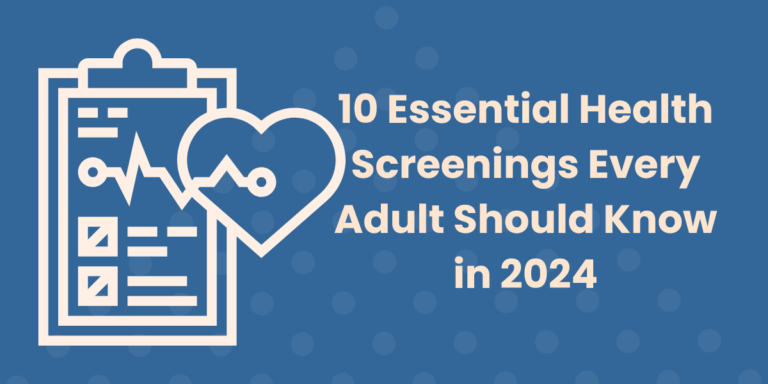How Diabetes Affects Your Sex Life
Most people have been hard-wired to desire and enjoy great sex.
If you count yourself as someone who enjoys a rich and fulfilling sex life, then you need to know how diabetes can actually disrupt the passion.
It may not be immediately obvious, but diabetes will take its toll over time. And some of the damage may be irreversible if left untreated.
So read on to learn how diabetes causes problems in one of the most enjoyable areas of our lives and what conversations to have with your Doctor in order to fix and prevent this complication of diabetes.
When is High Blood Sugar a Problem?
Diabetes is a disease of high blood sugar over a long period of time.
The high blood sugar in itself is not the problem. After all, our blood sugar oscillates throughout the day.
Our blood sugar will go up in the morning so we supply energy to our muscles to find food. Then it will go up again after we eat food. And the levels go back down to a baseline after a couple hours.
The problem develops when blood sugar levels do not go back down to a normal baseline. The baseline of a normal blood sugar level is 90 mmol/dL (This is before eating).
People with diabetes may not return to this baseline. They may consistently “live” at 140 mmol/dL and even higher. Sometimes as high as 500 before they are in a life-threatening emergency.
Consistently high blood sugars will cause problems by damaging blood vessels.
How Diabetes Affects Blood Vessels
All this extra sugar floating around in the blood causes damage to the blood vessels. And with damage comes an attempt to repair them.
These quick repairs are only meant to be a temporary fix until a more permanent solution.
However the body’s repair mechanisms are slowed by all the excess sugars. So a permanent solution is rarely completed because it’s too slow and more damage is being done elsewhere.
- Too much sugar in the blood
- Sugar are microcrystals that scratch the very smooth surface of the blood vessels
- A build up of scratches causes damage
- The body will attempt to repair the damage with a temporary fix first, followed by a permanent fix
- The body does not have time for the permanent fix as more damage is being done
- So the body continues using the temporary fix, in the form of cholesterol, instead of the permanent fix
- Plaque build up forms and starts to block blood vessels
- Now blood cannot reach vital organs effectively
- This will lead to stroke, heart attack, kidney failure, and erectile dysfunction
This is truly a simplified progression of the disease. However it does illustrate how high blood sugars translate to problems like stroke, heart attack, kidney failure, and even erectile dysfunction.
Diabetes essentially compromises blood flow
If blood cannot reach the organs or erectile tissue,
- Men will have a difficult time maintaining an erection
- Women will have difficulty as well since the clitoris is made with the same erectile tissue, just in a different shape
Decreased blood flow to the genitals not only makes things less firm for stimulation, but it also means that the nerves in the area are not supplied with nutrients and oxygen to function at peak efficiency.
How Diabetes Affects Nerves
With less nutrients and oxygen to the nerves, the sensations are dulled.
But there is another reason diabetes will affect the nerves. It all goes back to the excess blood sugar levels.
Sugar itself is “osmotically active”. What does this mean?
A quick lesson on Osmosis with a Sponge
An “Osmotically active” molecule means that water is drawn to sugar.
So when there is too much sugar in the blood, water will get drawn out of the surrounding cells and cause them to shrink. When there is too much sugar inside a cell, water will get drawn into the cell and cause it to swell.
Think of what happens to a sponge. It will absorb water if placed in a bowl filled with water because the sponge was dry. Then if the sponge is placed on a dry surface, all the water will eventually leave the sponge, causing it to dry out again.
Now imagine your nerve cells are a sponge which uses sugar to absorb water. When sugar levels are normal, the water is evenly balanced. So the sponge never gets too wet or too dry.
But if there is too much sugar in the blood, the excess sugars have to go somewhere. And they sometimes go into nerves.
With the excess sugar inside the nerves, the nerves will actually swell up. And if they swell up, they accidentally activate themselves. This leads to painful neuropathy.
If the nerves swell up too much, they may burst and die.
So with no nerves, stimulation would be impossible.
There are studies that show the peripheral nervous system does have the ability to regenerate itself. However there are certain conditions in which this can be done, and not always the same as before.
Do people with diabetes have better stamina?
Does the combination of low blood flow and dulled nerves increase stamina?
Well there is another problem, the compromise in blood flow is affecting other organs such as the heart and the entire cardiovascular system.
With the heart unable to function at top efficiency, blood vessels being blocked throughout the body, and nerve damage, the active passion of sex actually becomes difficult. And the person performing the act will be more easily winded.
Therefore any passion that might have been present at the start of the act will fizzle out if you have to stop more often to catch your breath.
So people use medication like viagra to help keep things firm by opening the blood vessels as wide as possible.
This will improve blood flow to the genitals. But use this medication only under your Doctor’s supervision as this can lower your blood pressure to a dangerous level.
What Can You Do to Control Diabetes?
First, know the signs of diabetes
The signs of high blood sugar include but are not limited to:
- Headache
- Blurry vision
- Increased appetite
- Increased thirst
- Increased urination
The signs of low blood sugar include but are not limited to:
- Headache
- Dizziness
- Sweating
- Hunger
- Shakiness
- Change in behavior
- Feeling weak or tired
These signs should clue you into an underlying problem. Therefore you should set an appointment with your Doctor.
Second, take notes for your Doctor
Your Doctor will want to know details such as:
- The symptoms you have experienced
- Family history of diabetes (has your mother, father, grandparents, brother or sisters had diabetes?)
- If you are known to have diabetes,
- What medications are you taking?
- Have you been taking them as directed?
- Have you been missing medication?
- Did you run out?
- Is there a problem with insurance coverage?
- What does your diet and exercise regimen look like?
- Do you tend to eat simple carbohydrates?
- Bread
- Pasta
- Rice
- Fast foods
- Do you walk daily? How much?
- Do you tend to eat simple carbohydrates?
Third, discuss the 3 controls of Diabetes with your Doctor
There are 3 main ways to control Diabetes and possibly reverse or prevent it.
- Diet
- Diet is perhaps the single greatest factor that contributes to diabetes.
- Western society has no shortage of processed foods and simple carbohydrates.
- Cutting back on foods like bread, pasta, or rice will reduce the spikes of blood sugar.
- Eating more vegetables will introduce more fiber that stabilizes blood sugar levels.
- Lean protein such as chicken can also help you feel full, with little impact on blood sugar levels.
- Exercise
- Walking is a great, low impact exercise which helps control blood sugar.
- 30-45 minutes of brisk walking every day is often recommended.
- Walking is best done after a meal, so that the sugars of that meal are used by the muscles and not stored as fat.
- Walking after a meal will also help lower the spike of blood sugar.
- If you are not able to walk, find another physical activity to do which:
- Is low impact
- Can be done with a repetitive motion
- Can be done easily
- Medication
- Medication should be used when diet and exercise are not enough to control blood sugar levels.
- There are a multitude of medications to help control diabetes.
- Be sure you discuss your options with your Doctor to determine what is best for you.
- Make sure you know details about your medication such as:
- The medication name
- How does it help control blood sugar
- What is the dose
- How many times should you take the medication
- If the medication is not a pill, how to take the medication
- Is there a device you need to learn how to use
- Ask your provider to teach you how to administer the medication so you can do it at home
Conclusion
Diabetes is a long-term problem which requires a long-term solution.
It will take effect on your sex life in a slow but consistent manner. This is actually good news for you.
You can take small but consistent steps to change the trajectory of the disease and create a more favorable outcome.
Love is a battlefield. I never thought that Diabetes would be a potential contender. But this is one you can ban from the ring.







